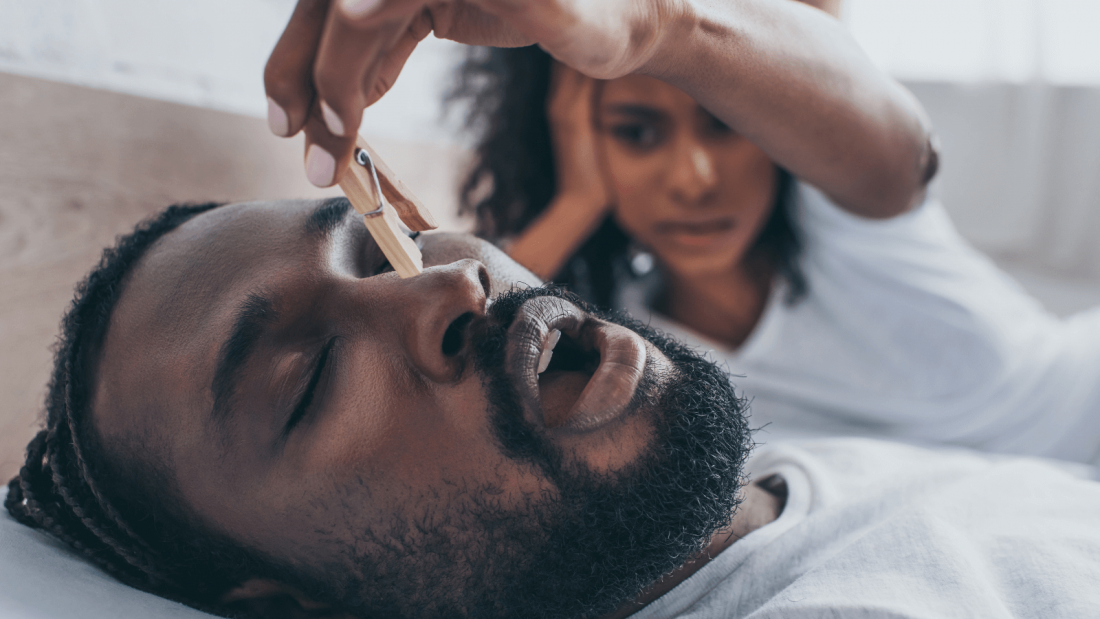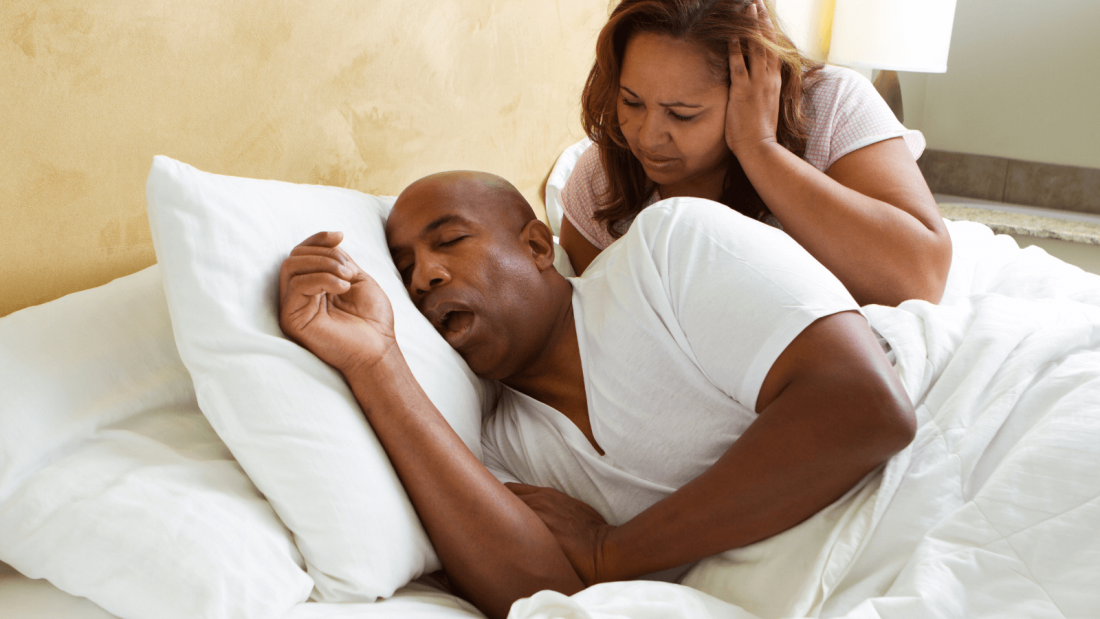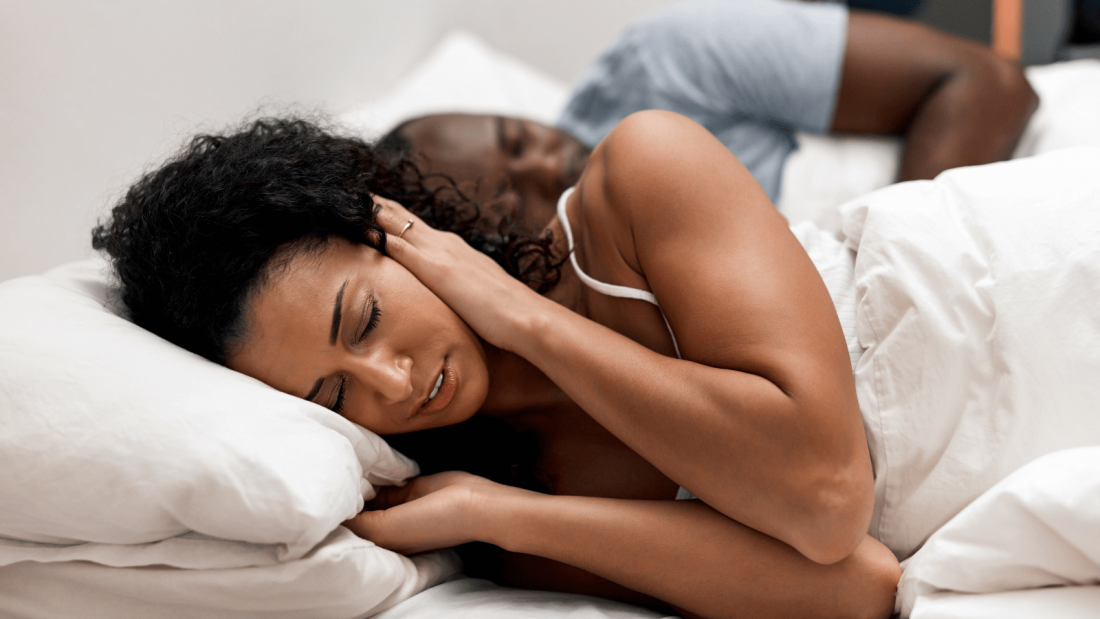In recent months, getting a good night’s sleep has become a challenge for many of us so we turned to a top sleep expert for guidance on what could be preventing us from getting a restful slumber.

With all this uncertainty in the world, increased anxiety and stress are red flags when one is trying to get a decent night’s sleep, but what if your problems are compounded by the issue of snoring, or you think you might have sleep apnoea?
We turned to Dr Karina Patel, a sleep expert from The London Sleep Centre to answer some of the most common questions we all have on sleep and the conditions that prevent us from getting a good night’s sleep.
Is sleep hygiene important? If so, do you have some top tips to ensure optimum sleep hygiene?
The bedroom should be well ventilated. Phones shouldn’t be kept next to the bed and you should have no screen time before bed. There are blue light filters available on most screens now, however they just deal with the light. You also need to allow your brain to start relaxing before you go to bed so any stimulation should be avoided. The electromagnetic waves emitted from electronic devices can also cause some stimulation so should be kept outside of the room.
Other stimulants like caffeine should be avoided in the afternoon. Alcohol is a depressant, but it can cause inflammation so having alcohol directly before bed may allow you to fall asleep, but it can also lighten your level of sleep so sleep efficiency is decreased.
The spine should be kept well aligned as well so choosing a pillow that keeps the spine as straight as possible is also something that can help.
It is equally important to maintain the potency of the airway. You should ensure that your nose isn’t blocked before you go to bed so things like nasal sprays alongside decongesting exercises are a vital part of the pre-sleep advice we give.

Does breathing through your mouth when sleeping affect your quality of sleep?
In a word – yes.
- Snoring – due to vibration of the soft tissues of the airway (usually the throat). The airway is impinged and flow of air to the lungs is compromised. This can also cause sleep disturbance for your bed partner. Sometimes you can wake yourself up if it is very loud.
- Dry mouth – can lead to a greater incidence of viruses and bacteria lodging in the back of the throat and causing sore throats and other infections, flu, colds etc.
- CO2 loss – your body loses too much carbon dioxide. This is one of the main gases that regulates how much air you take in. When the balance is incorrect mucus is produced to slow the breathing down. Unfortunately, this leads to a greater CO2 imbalance and the cycle repeats itself with more mouth breathing. The regulation of the gases is important, as CO2 balance is needed for brain and muscle functioning, so you may have problems with memory or concentration if correct functional levels aren’t maintained.
All three will affect the quality of your sleep by disrupting your sleep cycle stages (usually micro-arousals). You may wake feeling unrefreshed or sometimes like you have a lot of energy as your sympathetic nervous system goes into overdrive. We should ideally stay in a parasympathetic or calm state throughout most of the day and night. The sympathetic or fight or flight response is intended to be used during times of stress. It is our extra generator/ back up system. It causes shallow, rapid breathing.
If you’re a mouth breather, are you more likely to snore?
Yes, as the throat is closed there is more and more chance the soft tissue rubbing will cause that vibration sound as described above.
Is there anything you can do to improve nose breathing and snoring?
Snoring is multifaceted – it can be nasal or oral. If nasal, you can use a nasal spray such as Xlear (we recommend it as a first step to 70% of our patients as it opens up the airways – we know if it will work within 10 minutes). You can use decongesting exercises. You can also use nasal strips or cones to help open up the nose. You can check whether your adenoids and tonsils are inflamed.
There are a number of oral appliances that can be used for snoring which hold the jaw in a more forward position which opens up the throat. Also make sure you are using a pillow that doesn’t cause the head to tilt in and close off the airspace.

Can you explain the link between mouth breathing and sleep apnoea?
Sleep apnoea is the repeated cessation of breathing during sleep. Obstructive Sleep Apnoea, which is what we are considering here, looks at ways in which the airway can become obstructed either partially or fully and how many times that can happen in a night. It is normal for this to occur up to five times a night. If you have any more than five episodes, this means that you may suffer from apnoea. We obviously look at more than just this aspect, but this is a basic rule.
If you mouth breath you are causing nasal resistance and increase the collapsibility of the airway. This is due to the fact that the jaw shifts backwards and reduces the space at the back of the throat. This can cause snoring and also CO2 imbalance as mentioned before.
Sleep apnoea is linked to many other conditions such as diabetes and heart disease…
If you have a child that mouth breathes, please get it checked as if it is caught early, they have a better chance of reducing their chances of developing a sleep breathing disorder later life. Sleep apnoea is linked to many other conditions such as diabetes and heart disease, so we need to start looking at sleep as a screening tool for other serious health conditions.
How can you tell if you suffer from sleep apnoea if you live alone?
Again, there are many apps that can be used for snoring and sleep apnoea. The snore lab app seems to be the most popular, but it is important to note that not everyone that snores has sleep apnoea and vice versa. Sometimes absence of any sound can be more dangerous as that is a complete blockage, rather than partial blockage, which causes a sound.
Visit www.londonsleepcentre.com for further information.
Please visit your doctor if you have concerns about any of the conditions mentioned in this article.












